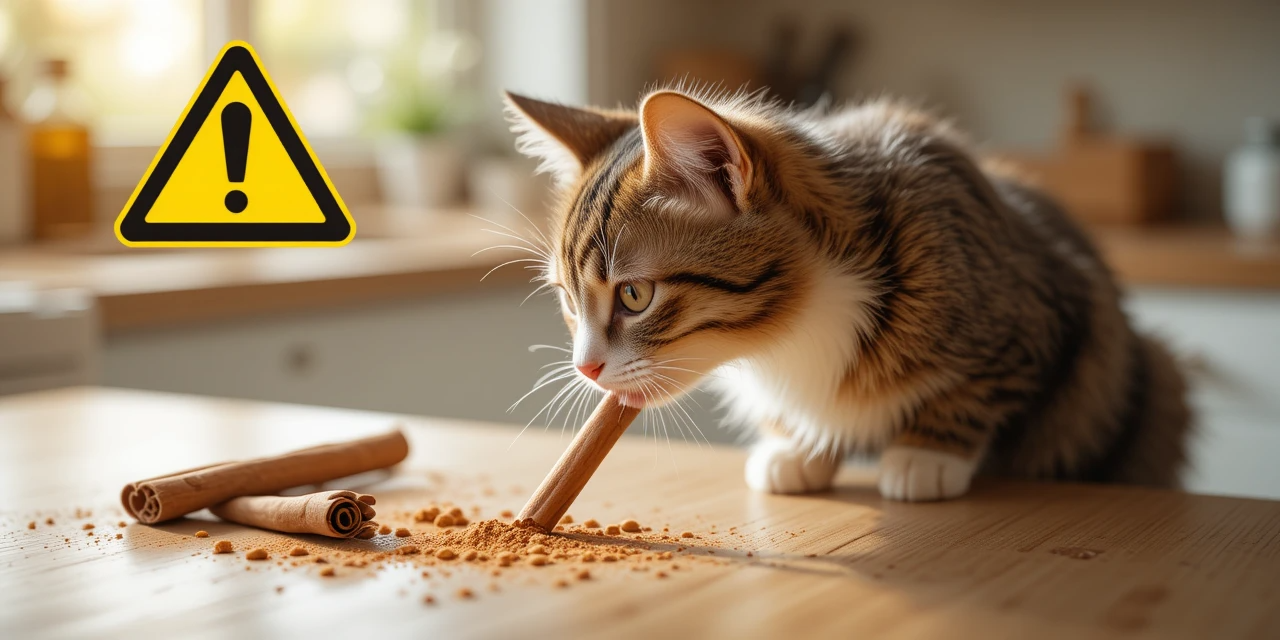Can Cats Eat Cinnamon? Risks, Symptoms, and Expert Advice
Cinnamon is a beloved spice in kitchens around the world, prized for its warm aroma and sweet, spicy flavor. But while it may be safe and even beneficial for humans, many pet owners wonder: Is cinnamon safe for cats?
As responsible cat parents, it’s essential to understand the hidden dangers that common household items—like spices—can pose to our feline companions. This article explores everything you need to know about cinnamon and cats, from toxicity risks to preventive tips and expert opinions.
What Is Cinnamon?
Cinnamon comes from the inner bark of trees in the Cinnamomum family and is available in two primary forms:
- Ceylon Cinnamon (True Cinnamon) – Native to Sri Lanka, it’s considered the “healthier” type with lower levels of coumarin.
- Cassia Cinnamon – More common and inexpensive, but contains higher levels of coumarin, which can be harmful in large doses.
Cinnamon is found in:
- Baked goods and snacks
- Scented candles and potpourri
- Essential oil blends
- Seasonal decorations
With so many household products containing cinnamon, cats can be unintentionally exposed through inhalation, ingestion, or skin contact.
Is Cinnamon Safe for Cats?
Technically, cinnamon is listed as non-toxic to cats by the ASPCA. However, that doesn’t mean it’s entirely safe.
Toxicity in cats is dose-dependent and influenced by the form of cinnamon. Ingesting a tiny lick of cinnamon-flavored frosting may not be life-threatening, but exposure to essential oils, powders, or cinnamon sticks can lead to severe health issues.
Why Cinnamon Can Be Harmful to Cats
Cats metabolize substances differently than humans—and not in their favor. Specifically, they lack liver enzymes called glucuronyl transferase, which help break down many compounds found in essential oils and spices.
Cinnamon contains two main compounds of concern:
- Coumarin – Found mostly in Cassia cinnamon, it can cause liver damage and blood thinning.
- Cinnamaldehyde – Responsible for cinnamon’s strong smell, it’s a known irritant to feline skin, eyes, and respiratory systems.
When inhaled, ingested, or absorbed through the skin, these compounds can quickly overwhelm a cat’s system.
Symptoms of Cinnamon Toxicity in Cats
If your cat has been exposed to cinnamon, watch for these warning signs:
- Vomiting or diarrhea
- Coughing or wheezing
- Difficulty breathing
- Lethargy or weakness
- Skin irritation or rashes
- Drooling or pawing at the mouth
- Low blood sugar (hypoglycemia)
- Signs of liver stress or damage
In severe cases, especially with concentrated cinnamon oil, symptoms can escalate rapidly and require immediate veterinary care.
Common Sources of Cinnamon Exposure
Here are everyday items where your cat might come in contact with cinnamon:
- Baked treats left on counters
- Essential oil diffusers and sprays
- Scented candles or potpourri bowls
- Holiday decorations with cinnamon sticks
- Spice containers knocked over during curious climbs
Even cinnamon-scented litter or pet-safe sprays should be used with caution. Cats are sensitive to scents and chemicals—even natural ones.
What to Do If Your Cat Ingests Cinnamon
If you suspect your cat has come into contact with cinnamon:
- Stay calm – Panic won’t help your cat or your judgment.
- Assess the situation – Was it a small lick of cinnamon powder or ingestion of a cinnamon stick or oil?
- Watch for symptoms – Monitor breathing, energy levels, appetite, and behavior.
- Contact your vet immediately – Even mild symptoms can turn severe.
- Do NOT induce vomiting unless instructed by a professional. This can do more harm than good.
- Provide details – Tell your vet the type of cinnamon, amount, and how your cat was exposed.
Preventive Measures
Protect your cat with these simple precautions:
- Store spices, oils, and baked goods out of reach.
- Use pet-safe diffusers or none at all.
- Avoid giving cats human food that contains cinnamon or other spices.
- Keep holiday decorations cat-proof.
- Read labels on pet products—some contain cinnamon as a “natural preservative.”
Expert Opinions
“Even though cinnamon isn’t technically classified as toxic, it’s not harmless either,” says Dr. Rachel Barrington, a feline veterinary specialist.
“Cats are particularly sensitive to essential oils and compounds like cinnamaldehyde. In my clinic, I’ve treated cats with skin burns from contact with cinnamon oil diffusers.”
“Just because a food is safe for you doesn’t mean it’s safe for your pet,” adds pet nutritionist Clara Donovan.
“Cats have different metabolisms and a much lower threshold for toxicity.”
FAQs
Q: Can a small amount of cinnamon harm my cat?
A: It depends on the form. A tiny sprinkle from a baked good likely won’t hurt, but essential oils or powder inhalation can be dangerous.
Q: Is cinnamon found in commercial cat foods?
A: Rarely. Some natural preservatives may list cinnamon or “spices,” but reputable brands ensure safety through testing.
Q: Are there safe spices for cats?
A: In moderation, herbs like catnip, valerian root, and parsley can be safe and even beneficial. Always consult your vet before introducing anything new.
Conclusion
While cinnamon may not be technically toxic to cats, it is not safe in most forms. From respiratory issues to potential liver damage, the risks are real—especially with essential oils or concentrated exposures.
Keep cinnamon-containing products out of your cat’s reach, avoid using diffusers around them, and educate others in your household. When in doubt, always consult your vet.
Your cat’s safety is worth more than the scent of a holiday candle.


